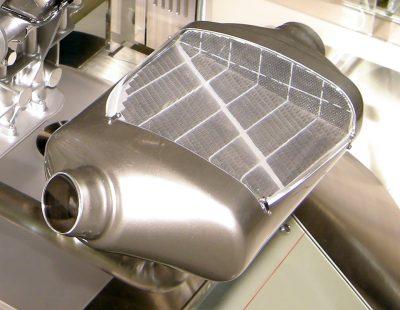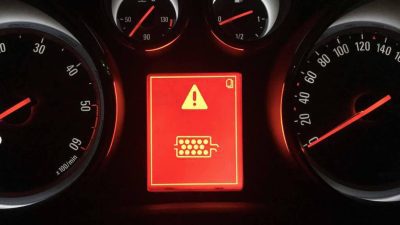BMW Diesel Particulate Filters (DPF) – What They Do and How to Maintain Them
Since 2009, every diesel engine, including your BMW, has been required to have a diesel particulate filter (DPF). These filters are designed to trap harmful emissions and reduce pollution.
If your diesel BMW doesn’t have a working DPF, it’ll fail to meet the necessary emission standards. It’s actually illegal and you’ll fail your next MOT if your DPF isn’t in good working condition.
It’s not something you want for your BMW.
Without regular maintenance, your DPF can become clogged and fail, making your vehicle harmful to the environment and not allowed on the road.
Throughout this article, you’ll uncover:
- How DPFs work
- Tips for avoiding issues
- The most frequent causes of DPF failure
- The significance of consistent DPF maintenance and cleaning
Whether you own a diesel-powered BMW or are just curious about diesel particulate filters, this article has got you covered.
Need help with your BMW’s DPF? Call Donnellan Auto Services today.

How Do Diesel Particulate Filters Work?
Diesel Particulate Filters (DPFs) play a critical role in reducing pollution by capturing and storing soot and carbon produced by your vehicle’s diesel engine during combustion. Since diesel engines can cause air quality issues, DPFs are indispensable in modern diesel BMWs.
Traditionally, DPFs are made from ceramic materials and contain small channels to trap soot particles.
However, after some time, these particles will eventually fill the filter. When this happens, it’ll cause poor engine performance and reduced fuel efficiency. This is why regular cleaning is required; nobody wants a poor-performing BMW.
The DPF cleaning process, known as “regeneration” involves burning off the accumulated soot/carbon to restore its functionality.
There are two main ways to perform regeneration on your BMW’s DPF:
- Passive Regeneration happens naturally when the vehicle is driven at high speeds, like on motorways or dual carriageways, where the engine load is higher. This increases your vehicle’s exhaust gas temperatures sufficiently to incinerate the soot without additional mechanisms.
- Active Regeneration is initiated when usual driving conditions don’t allow for passive regeneration. In this scenario, your vehicle’s engine control unit (ECU) injects extra fuel to increase the exhaust temperatures, causing the soot to burn off. This process can take around 30 minutes; you may see a warning light on your dashboard during this process.
Regular regeneration is vital for maintaining your DPF’s efficiency and ensuring it prevents harmful pollutants from being released into the environment.
Why Are Diesel Particulate Filters Necessary?
Diesel Particulate Filters (DPFs) have become necessary due to standards like Euro 5, which states they are needed in diesel engines to curb harmful emissions. These environmental regulations make it clear that driving a diesel vehicle (like your BMW) without an operational DPF fails to meet emission standards and is against the law.
Since February 2014, MOT tests have required a thorough inspection of your vehicle’s DPF to ensure that your BMW meets the new emissions standards.
Failure to comply with these emission standards can result in hefty fines and penalties, which is something we all want to avoid.
If you need a BMW DPF check, don’t hesitate to call our experts at Donnellan Auto Services. We can also help with all repairs, maintenance and servicing.

What Is the Cause of Diesel Particle Filter Failure?
Your vehicle’s Diesel Particulate Filter (DPF) is crucial for maintaining both engine health and performance.
If it’s in poor condition, your vehicle could face some serious issues and even complete engine failure.
Here are some ways your DPF might fail:
- Overheating: If your DPF gets too hot, it might melt or develop cracks, severely diminishing its efficiency or leading to outright failure.
- Clogging: Soot accumulation during the regeneration process might not always burn off completely. This can block your BMW’s DPF, reducing engine performance and restricting exhaust flow.
- Lack Of Maintenance: Skipping regular DPF cleanings can lead to severe clogging, decreasing effectiveness.
- Fuel Contamination: Contaminated fuel, especially with substances like sulphur or water, can damage the ceramic components of your DPF, causing it to work inefficiently or even fail.
- Faulty Sensors: When your DPF sensors malfunction, they might cause your engine to operate outside the DPF’s ideal conditions, potentially leading to clogs or, in the worst-case scenario, damage to your BMW.
What Are the Signs of a Faulty DPF?
Should your BMW’s DPF start to malfunction, you might notice several indicators:
- Strange Noises: A blocked DPF can lead to unusual sounds, such as rattling or banging, due to increased exhaust pressure.
- Reduced Performance: If your DPF is clogged or failing, you may experience a drop in engine performance, noticeable through decreased acceleration and overall power.
- Strong Exhaust Smells: A compromised DPF can allow soot and particulates to build up, resulting in a noticeably stronger exhaust odour.
- Dashboard Warning Light: A specific warning light often signals DPF issues on your dashboard.
- Increased Fuel Consumption: A malfunctioning DPF can cause your BMW’s engine to use more fuel than usual, leading to poorer fuel economy.

If your vehicle has any signs of DPF problems, it’s crucial to get your car checked by a professional right away. Ignoring DPF issues can lead to significant repair costs.
Call Donnellan Auto Services today to keep your BMW in peak working condition.
Tips for Preventing Diesel Particulate Filter (DPF) Issues
Our BMW specialists recommend performing the following to keep your vehicle running smoothly and prevent DPF-related issues:
- Regular Maintenance: It’s essential to keep up with your vehicle’s maintenance schedule, including oil changes and air filter replacements, to avoid engine issues that could lead to DPF failure.
- Minimise Idling and Short Trips: Having your BMW idling for long periods or frequently driving short distances can clog your DPF. Avoid it when you can.
- Use the Appropriate Oil: Selecting the correct type of oil is crucial for DPF health. Oils labelled as low-ash or ashless are preferable because they have a lower risk of soot accumulation in your DPF.
- Opt for High-Quality Fuel: The fuel quality significantly influences DPF functionality. Contaminated or low-grade fuel can harm your BMW DPF and degrade engine performance.
Following these guidelines can help extend the life of your DPF and ensure your BMW remains efficient and environmentally friendly.
In Summary
To comply with emission regulations, every modern diesel engine is required to be equipped with an operational Diesel Particulate Filter (DPF). If your DPF is malfunctioning, you risk failing your MOT, having engine trouble, and poor performance.
If you want to limit problems with your BMW DPF, you can do the following:
- Use high-quality fuel and oil
- Perform regular checks
- Don’t skip services
- Limit short drives
- Don’t leave your vehicle idling too long
- Monitor your BMW’s performance and tackle any issues promptly
Adhering to these practices ensures that your DPF remains effective, contributing to lower emissions and improved performance.
At Donnellan Auto Services, we specialise in providing accurate DPF diagnostics at better than dealership value, helping you avoid expensive repairs.
If you’re experiencing DPF issues, our experienced BMW experts are here to assist. Call us today on 091 792474 for all your BMW DPF needs.
Our Location
Find Us
Donnellan Auto Services
Oranmore Business Park
Oranmore
County Galway
H91 HPC0
091 792474
Opening Times
| Monday | 08:30 - 17:00 |
|---|---|
| Tuesday | 08:30 - 17:00 |
| Wednesday | 08:30 - 17:00 |
| Thursday | 08:30 - 17:00 |
| Friday | 08:00 - 16:30 |
| Saturday | Closed |
| Sunday | Closed |




Car Repairs & Services
- ADAS Calibration
- Airbag Repairs
- Automatic Gearbox Servicing
- Car Air Conditioning
- Car Batteries
- Car Brakes
- Car Diagnostics
- Car Lights
- Car Repairs
- Car Safety Checks
- Car Servicing
- Car Tyres
- Clutch Replacement
- EV Repairs & Servicing
- Fleet Maintenance
- German Vehicle Specialists
- Hybrid Repairs & Servicing
- Mechanical Repairs
- NCT/CVRT Preparation
- Oil Change
- Steering
- Suspension
- Timing Belts / Cambelts
- Van Repairs & Servicing
- Wheel Balancing
- All Car Repairs & Services…





